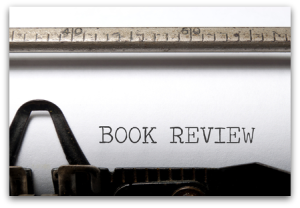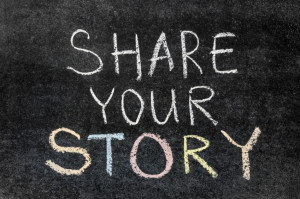 How many books do you read each year?
How many books do you read because a friend, family member, or colleague recommended them to you?
How many books do you read each year?
How many books do you read because a friend, family member, or colleague recommended them to you?
How many do you read and purchase because you read a favorable review online?
Book reviews serve as important guides for potential book readers and buyers.
In this post you will discover why leaving book reviews on retail and review websites such as Goodreads helps both your fellow readers and historians.
The Power of a Review
Book reviews sway our decisions about whether we should read, and/or buy, a book because they offer us social proof of its quality and content.
Our time is precious and none of us want to waste our time reading a book that has a poorly written or told story or that does not contain the information we seek. Therefore, we rely on reviews to help us figure out which books are worth investing time in.
We also use reviews to help us determine whether we should purchase a book or borrow it from our local library. If a lot of people loved a book, you may be more inclined to purchase it whereas you may opt to place a book on your library borrow list if it has a mix of positive and negative reviews.
2 Types of Reviews: Ratings and Scholarly Reviews
There are 2 types of reviews that effect our decision-making process: Ratings and Scholarly, or Literary, Reviews.
 1. Ratings: Websites often allow customers to review a book by rating it.
1. Ratings: Websites often allow customers to review a book by rating it.
Amazon uses a 5 star scale: 1 star means the book is bad and 5 stars denote a MUST read.
If a book carries a lot of positive ratings, you are more likely to decide to read it because a group of people have vetted the book as good and therefore worth your time.
If you are undecided about whether to read a particular book, negative ratings, or a lack of ratings, may sway you against reading it.
2. Scholarly or Literary Reviews: As historians, many of us want to know about the specific contents of a book before we determine whether to read it.
We rely on scholarly reviews to help us keep up on current historiography. We also turn to them when we question whether a book contains the information we need for our research projects.
A good scholarly review tells us about the content of a book, the author’s argument, the evidence they used, and about the strengths and weaknesses of the author’s analysis and their presentation of said evidence.
Based on our colleagues' insight we determine whether we should spend time with a given book.
Why You Should Leave a Review
 Three years ago, Karin Wulf made an excellent case for why historians should look upon scholarly book reviews as opportunities rather than as obligations.
Three years ago, Karin Wulf made an excellent case for why historians should look upon scholarly book reviews as opportunities rather than as obligations.
Therefore, I will focus on why you should review and rate books on online retail websites such as Amazon and review sites such as Goodreads.
You should leave reviews and ratings for the history books you read for 2 reasons:
1. Help Your Fellow Historians.
As noted above, positive ratings and reviews offer social proof that a book is worth people’s time.
If people think a book is worth reading then they are more likely to purchase a book and/or borrow it from a library. When you leave a positive review you are helping to spread your fellow historians' ideas and drive their book sales.
This is not to say that you should leave overly positive reviews for books you are lukewarm about.
If you think a book is only a 3 star book, rate it as such, but then offer a fair review of why you gave it 3 stars. Just as with a scholarly review, tell your fellow readers a bit about the book, why you liked it, and where you found fault with it. This type of constructive feedback will also help your colleagues improve their craft.
Remember that you should aim to be objective with all of your reviews.
 2. Help bring attention to good history books.
2. Help bring attention to good history books.
Each time you rate and review a good history book as a good history book you will help bring it to the attention of others. You will help make history accessible to those who do not know the book exists.
Retail sites and search engines use positive and negative ratings to help inform their search algorithms.
Books with positive reviews have a higher percentage of turning up in the search results when others search for the topic of a book.
Books with positive reviews and ratings are also more likely to appear in a retailer's recommended reading section or on their “New and Noteworthy” pages. Placement on these pages will help bring good history books to the attention of others who want to read a good history book.
 Goodreads
Goodreads
Goodreads is a social networking site for and about readers. It has more than 20 million users and it is a property of Amazon.com.
Goodreads influences book readers’ decisions about what to read. Its integration with Amazon’s Kindle eReader also means that ratings and reviews made in Goodreads figure into the algorithm of the world’s largest online book retailer.
The influence of Goodreads extends beyond its internal network and that of Amazon too. Users have the option to post their Goodreads ratings and reviews on Facebook, the largest social network with over 1.23 billion users.
Ratings left in Goodreads may also influence search results for engines like Google Search and Bing.
Conclusion
Leaving ratings and reviews helps make good history books more accessible.
They help bring the books you like to the attention of other history lovers because sites like Goodreads, Amazon, and BN.com use them to recommend the books you like to like-minded readers.
 Share Your Story
Share Your Story
Where do you review books?
